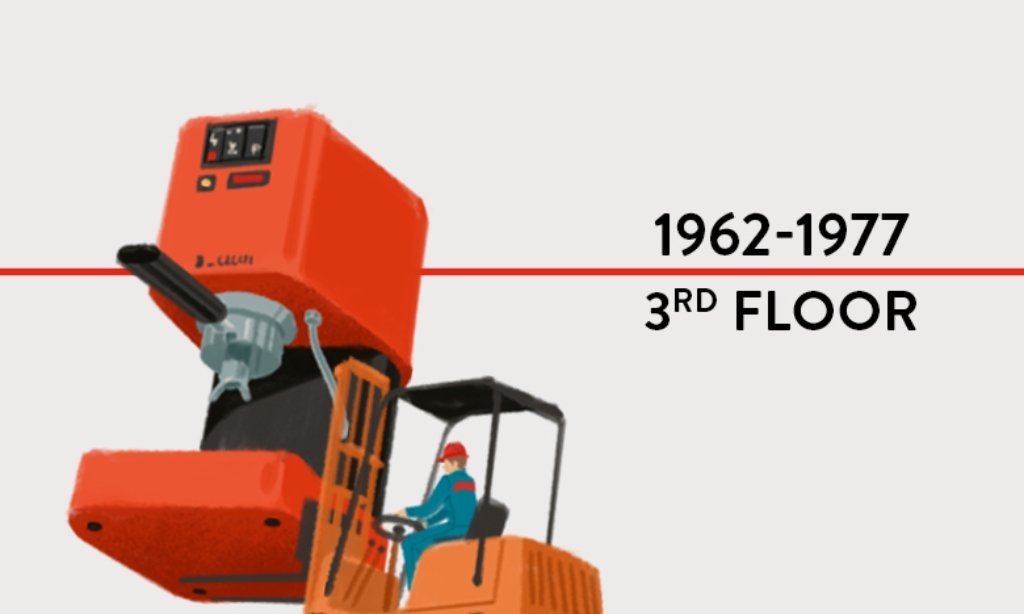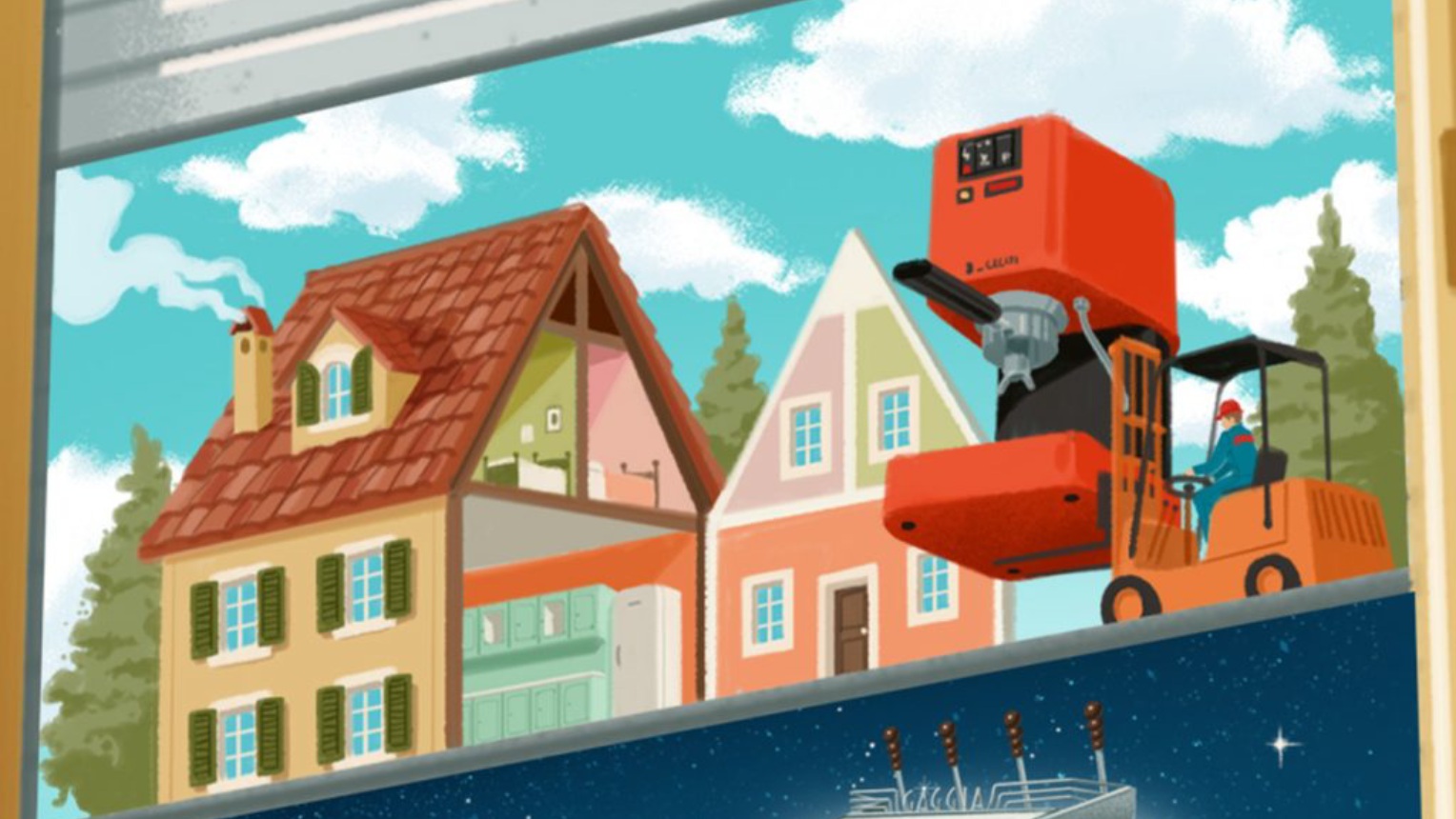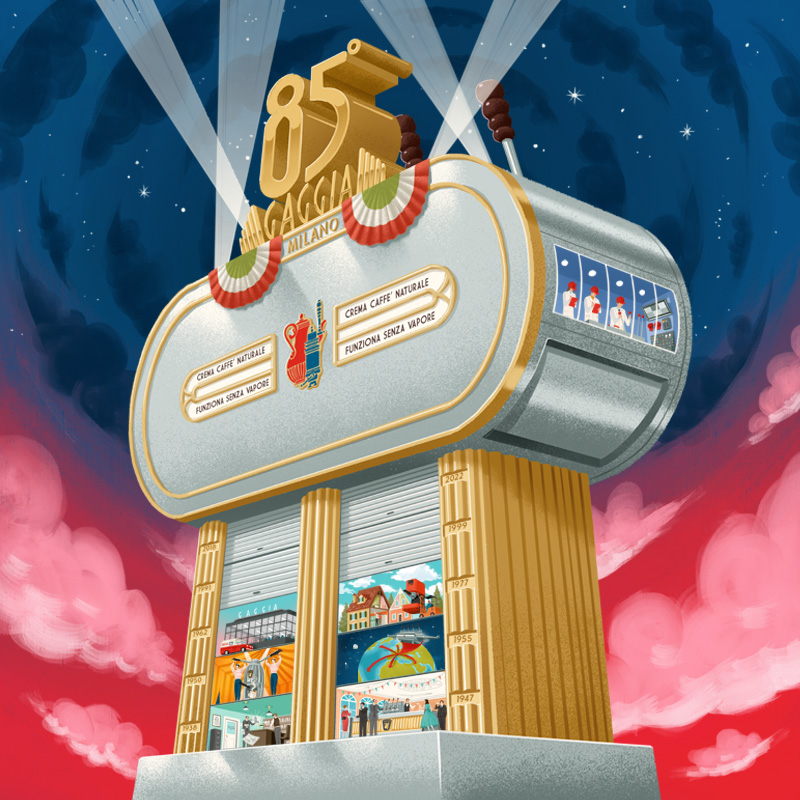85 years of heritage: 1962-1977

The international success achieved by Gaggia opened new opportunities for growth that required new and significant decisions to take.
In the 60’s, there was an increase in the brand popularity and coffee shops all over the world asked for high quality coffee machines that could make the authentic Italian espresso. In order to answer the growing demand and to satisfy the needs of an evolving market, the production was moved outside Milan to larger spaces, in a city named Robecco Sul Naviglio. It was 1962.
Once again, the company showed its willing to invest in the future and to create innovative products that could meet customers’ needs…and anticipate them, in some cases.

An avant-garde mindset, and a growing attention and research on design and materials became every day more relevant for the company. Gaggia started to collaborate with designers, experimenting with lines and shapes.
At the same time, the company worked on the desire to become a part of people’s lives with a revolutionary product that could bring the tradition of the Italian espresso from coffee shops into the homes. The big step was made in 1977 with the launch of the unforgettable Baby Gaggia.
Designed in collaboration with the famous designer Makio Hasuike, Baby Gaggia was the first espresso machine for home use to be mass-produced. Its signature lobster color, the distinctive compact and robust design, the great in-cup quality: Baby Gaggia immediately won the hearts of the Italians. It was an icon and status symbol, part of what then became a daily habit and a ritual for many people all over the world: coffee at home.
This domestic machine with a professional soul could make authentic Italian espressos, but also steam to froth milk for cappuccinos, and hot water to make teas and infusions. It was like having “a coffee shop at home”.

Baby Gaggia had a significant impact on coffee consumption and kickstarted a new habit that soon became diffused in many different Countries abroad. In fact, people could enjoy coffee – the authentic Italian espresso – at the comfort of their home. The advent of Baby Gaggia created a space for experimenting on coffee machines, inventing, exploring and researching in the coffee field.

 Truly Italian Roots
Truly Italian Roots